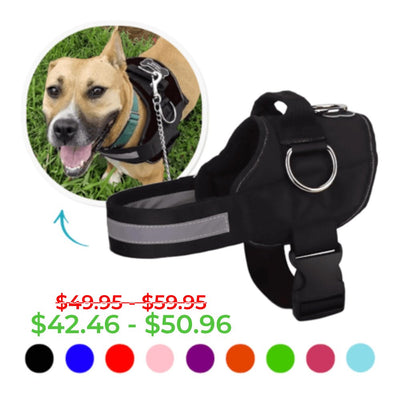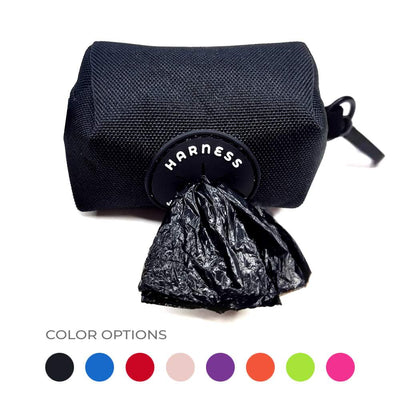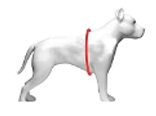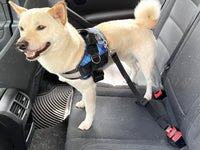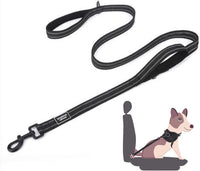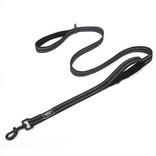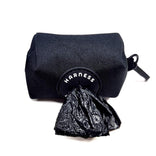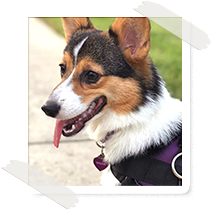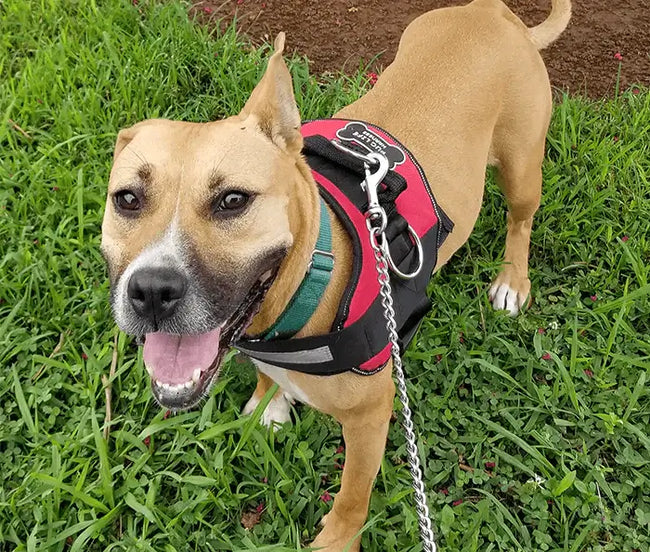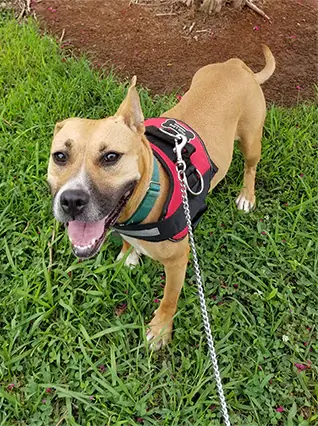Why Dog Begging Happens and How To Stop It
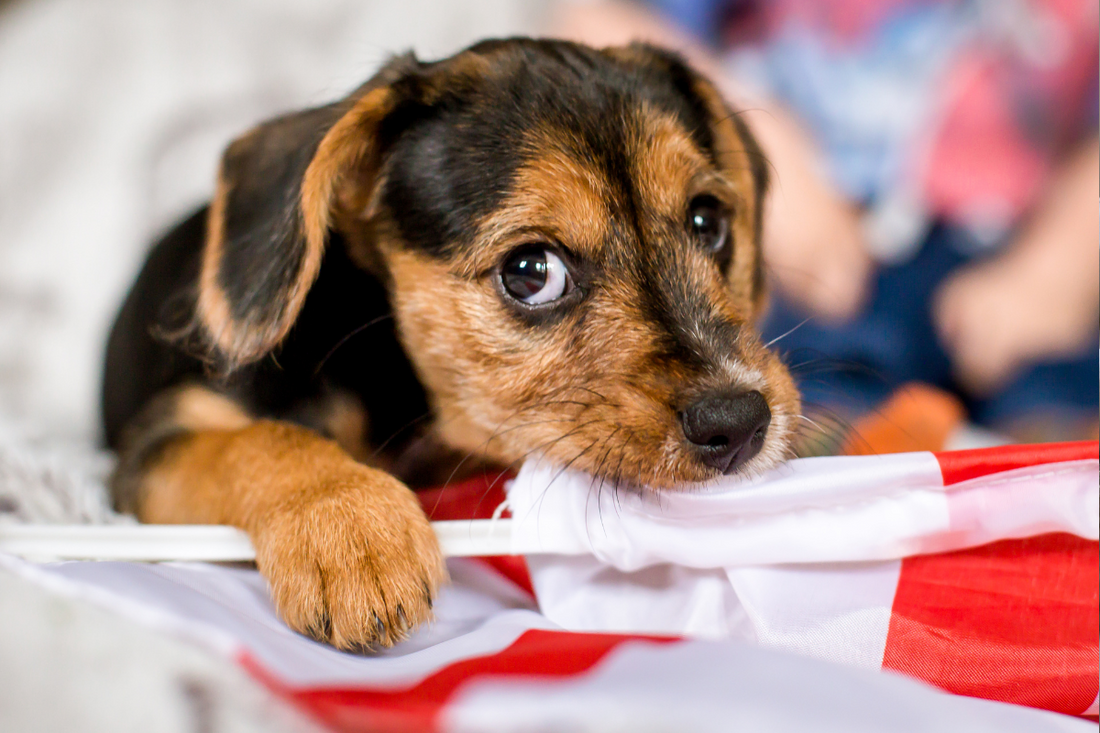
It all starts with those big, sad puppy eyes, maybe a little whimper, and a hopeful stare. You’ve got some leftover carrots on your plate, and your dog looks so cute you can’t help but share. While giving your dog a bit of safe “people food” now and then is usually fine, the begging that comes with it can get annoying fast.
Once your dog learns that begging works, you might find yourself dealing with it at every meal. A dog who begs or demands food isn’t much fun to be around. But don’t worry—this habit can be broken. You can teach your dog to wait patiently during meals or, even better, prevent the begging behavior from starting at all.
Why Do Dogs Beg?

For dogs, food is a huge motivator. They can smell it from far away and will often try to get it. Dogs don’t understand that your steak dinner isn’t for them. They also quickly learn where and how to get food, which can lead to begging.
If you've ever experienced your dog staring at you with those big, pleading eyes while you're eating, you're not alone. Begging for food is a common behavior in dogs, and it's something many pet owners deal with regularly. While those cute faces can be hard to resist, giving in to this behavior can lead to problems. Let's explore why dogs beg and how you can help them kick this habit.
Why Do Dogs Beg for Food?
At first glance, it might seem like dogs beg simply because they find our food delicious. While that's partly true, the reasons are a bit more complex. Over the past 10,000 years, dogs have co-evolved with humans, learning how to interact with us and even manipulate us to some extent. Begging is a behavior they've picked up along the way because it often gets them what they want—extra food.
Dogs are natural scavengers. Before domestication, they had to fend for themselves, often facing periods of scarcity. This history has left them with an instinct to eat whenever food is available, as they don't know when their next meal might come. So, even if your dog is well-fed, they'll still try to get more food because of this ingrained survival instinct. This behavior can lead to overeating and obesity, which is why it's crucial to address it.
What If My Dog Begs Even After Eating?

If your dog has just finished their meal and still comes to you begging for more, it's easy to wonder why they seem insatiable. This behavior isn't just about hunger; it's also about habit and instinct. In the wild, food wasn't always readily available, so dogs would eat as much as possible when they had the chance. This "feast or famine" mentality has carried over into domesticated dogs, making them prone to begging even when they're not hungry.
What Happens When You Give In?
When you give your dog a treat because they beg, you're reinforcing the behavior. Dogs are quick learners, and if they realize that begging leads to rewards, they'll continue to do it. This not only creates a bad habit but can also lead to overeating and, in some cases, even poisoning if they consume something harmful. It's essential to be mindful of what you're feeding your dog and to resist the urge to give in, no matter how cute they look.
How to Get a Dog to Stop Begging
Be Consistent
The most important rule is to be consistent. Never give your dog food from the table or while you're eating. If you give in even once, they'll think begging works and will keep doing it. Make sure everyone in the household is on the same page about not feeding the dog at the table.
Keep Them Away During Mealtimes

To prevent begging, it's a good idea to keep your dog out of the dining area while you're eating. You can train them to stay in another room or use a baby gate to keep them out. This separation helps break the association between your mealtime and their begging.
Try Obedience Training
Obedience training can be incredibly effective in curbing begging behavior. Teach your dog basic commands like "sit," "stay," and "leave it." These commands can help control their impulses and redirect their attention. If you're struggling with training, consider seeking professional help from a dog trainer.
Don’t Resort to Punishment
Never punish your dog for begging. Yelling or pushing them away can make the situation worse and damage your bond. Instead, ignore the behavior. When your dog realizes that begging doesn't get them anything, they'll eventually stop. Reward them with praise or a treat when they display good behavior, like lying down quietly while you eat.
Provide Plenty of Exercises and Toys

Sometimes dogs beg out of boredom. Ensure your dog gets plenty of exercises and has access to stimulating toys. Puzzle toys that dispense treats can be a great way to keep them occupied and mentally engaged, reducing the likelihood of them begging.
Be Patient and Persistent
Change doesn't happen overnight. Be patient and consistent with your training and rules. Over time, your dog will learn that begging doesn't get them what they want, and the behavior will decrease.
Begging is a natural behavior for dogs, but it can become problematic if left unchecked. By understanding why your dog begs and implementing consistent training and management strategies, you can help them break this habit. Remember, patience and consistency are key. With time, your dog will learn to stop begging, leading to a more peaceful mealtime for everyone involved.
If your dog behaved and did not beg during your meal time, reward them with a treat or walk!

At Joyride Harness, we want to help you and your dog live your best lives. Our harness is one of the best tools to help a leash-reactive dog because it prevents pulling.
But more than that, its design doesn't put pressure on a dog's sensitive areas. This means that it won't hurt them while you're working together. And it fits all sizes and shapes of dogs. Shop the Joyride for your pup today and work together to make every walk a joy!


